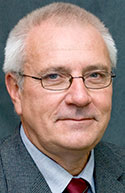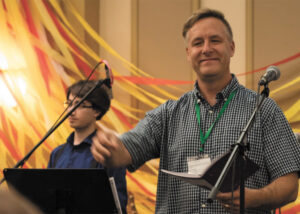Something needs to be done about all the hate in the world.
This morning I encountered no fewer than three pieces of media expressing incredulity that the internet seems not to have transformed humanity into an oasis of harmony and mutual understanding, but has, instead, degenerated into a cesspool of anger and ignorance.
The headlines were a mixture of bewilderment, frustration and resignation: “The internet will be the death of us,” “I thought the Web would stop hate, not spread it,” and “The business of internet outrage.” The creators of these pieces seem to be struggling with the realization that the online world has laid bare some of the worst human tendencies, and that there are vast sums of money to be made by creating content that stokes the flames of righteous anger.
I am as puzzled by their puzzlement that the internet hasn’t “stopped hate.” Really? You’re surprised that dark things lurk beneath the surface of human hearts and minds? You’re surprised that the market will reliably generate content that is profitable? You’re surprised that people like a fight—even “enlightened” people—and that even more people like to watch a fight? You’re surprised that tribalism is alive and well? You’re surprised that hatred seems to be a rather stubborn feature of the human experience?
I am convinced that one of the things we are in desperate need of right now is a more honest anthropology.
When I was growing up, many things in the Bible bewildered me: the weird miracles, the apparently divinely sanctioned slaughter, the tedious genealogies and hard-to-pronounce names, the bizarre symbolism and excruciatingly detailed legal codes. Not to mention, there was too much talk of foreskins for my liking. There is plenty in the Bible’s pages to give cause for the scratching of foreheads and the furrowing of brows.
But one biblical theme that completely resonated with me was that of the conflicted nature of all human thinking and acting in the world. Take passages like Jeremiah 17:9, for example: “The heart is deceitful above all things and beyond cure. Who can understand it?”
Or Isaiah 64:6: “All of us have become like one who is unclean, and all our righteous acts are like filthy rags; we all shrivel up like a leaf, and like the wind our sins sweep us away.”
Or I John 1:8: “If we claim to be without sin, we deceive ourselves and the truth is not in us.”
Or one of the most psychologically astute passages in the New Testament, in my opinion, Romans 7:15, 21-23: “I do not understand what I do. For what I want to do, I do not do, but what I hate I do. . . . Although I want to do good, evil is right there with me. For in my inner being I delight in God’s law; but I see another law at work in me, waging war against the law of my mind and making me a prisoner of the law of sin at work within me.”
These words told the truth of my lived experience. They described me by holding up an unflattering but devastatingly accurate mirror. They seemed to express the deep conflict at the heart of what it means to be a human being. We want to do good but we aren’t always able or willing to do it.
We are a mystery to ourselves, a bundle of contradictions. We are inherently prone to self-deception, particularly when it comes to justifying our own behaviours and assumptions. We are not nearly as pure or virtuous as we imagine ourselves to be. We are, each one of us, capable of beautiful and terrible things. We are human beings.
It’s important to acknowledge this. If we are to make any headway in addressing all this hatred, we have to recover language to express some of these irreducibly human tendencies and experiences.
If we don’t, we just continue to neatly partition the world—online or otherwise—into good people like me and bad people who say and do wicked things that I don’t. Then we’ll keep feeding the hate machine, lining the pockets of those who parasitically feed on our outrage, widening the divides that frustrate us and avoiding the truth.
This doesn’t mean that we don’t name evil honestly, or resolutely resist injustice, or add our voices to those protesting the degradation of our collective discourse. It just means that we do it from a more honest and ultimately more hopeful starting point.
Something needs to be done about all the hate in the world.
Ryan Dueck is pastor of Lethbridge (Alta.) Mennonite Church. Adapted with permission from the Oct. 31, 2018 post on his blog, Rumblings.
 Repentance
Repentance
By Paul Foth
Growing up as an evangelical Protestant, I knew a little bit about Lent. It meant renouncing something superfluous like ice cream or movies. If I thought about it, I might also spend a little time in prayer and contemplation of the passion of Jesus. But Lent was mostly an exercise in restraint.
For early Christians, Lenten fasting served the larger purpose of repentance. Lent began as Christians fasted alongside new converts, or catechumens, who were preparing for baptism at Easter. Prayer, charity and almsgiving accompanied these communal fasts. Lent was a time not only to root out sin, but also to cultivate virtue.
Atomic charges
It could be said that repentance, like an atom, has “positive” and “negative” elements that together make up the whole. The negative turning from sin and the positive attraction toward Christ through prayer and good works are the two sides of the process of repentance.
An early Christian prayer clearly describes this process. A ministry colleague introduced this prayer of humility and repentance to me during a staff prayer time:
“O Lord and Master of my life, take from me a spirit of laziness, despair, lust of power, and empty talk. But give rather a spirit of chastity, humility, patience and love to your servant. Yes, O Lord and King, help me to see my own transgressions and not to judge my brother or sister, for blessed are you unto ages of ages. Amen.”
This prayer is attributed to Ephrem of Syria, a fourth-century church father known for his beautiful theological poetry and hymnody.
Since learning this prayer, I have used it as a plea for repentance, humility and love.
Turning away
Saint Ephrem’s prayer begins with a petition for God to take away the vices that bind and blind us.
First is sloth, or laziness, with its passivity and love of comfort. In this busy technological age, sloth can manifest itself not merely in the absence of action, but in wrongly placed attention and effort. Laziness means forsaking love and obedience to Christ for lesser distractions.
Despair, or despondency, considered a sort of eighth “deadly sin” by early Christians in the Greek East, is a state of all-encompassing negativity, giving up on the grace of God.
Ambition, manifest as lust for power, leads us to try to control one another and shape our world through coercion.
Empty talk catches us up in frivolous pursuits that distract our souls from seeking Christ. And, as James reminds us, the tongue can lead a person’s entire life down a path of destruction (James 3:5-6).
In this prayer, I seek deliverance from these forces that ensnare my soul and trap me in selfishness and despair. This turning from evil is the “negative” side of repentance.
Turning toward
To be stripped of these vices alone would do little were they not replaced by the fruit of the Spirit.
Chastity, or “whole-mindedness,” according to Orthodox writer Alexander Schmemann in Great Lent, is rightly ordered love and attention.
Humility, which Augustine called “the foundation of all the virtues,” delivers us from pride and despair.
Patience and humility together help us resist the impulsive drives to promote ourselves and dominate others.
Love is the crowning fruit of the Spirit, our right orientation toward God and others.
This turning to Christ and growing in the fruit of the Spirit reflects the positive side of repentance—not only being emptied of sin, but being filled with good.
Humility
Finally, this prayer encourages humble self-reflection as an antidote to judgment, harkening to Jesus’ admonition to consider the plank in our own eye (Matthew 7:5).
Asking God to help us see our own sins is not an invitation to despair and self-loathing; rather, it guards against pernicious pride, leading us toward a realistic and humble picture of our own sinfulness and God’s overwhelming mercy. True repentance is grounded in true humility.
The prayer of Saint Ephrem, which Orthodox Christians use throughout Lent, reflects both the negative and positive aspects of repentance. Repentance means turning from sin, turning to God and seeking to walk in the way of Christ.
John the Baptist commanded the Pharisees to “produce fruit in keeping with repentance” (Matthew 3:8). Lent is an opportunity to cultivate this fruit, not only to weed out harmful, selfish and gluttonous habits from our lives, but also to seek to grow in the grace of the Holy Spirit.
Paul Foth is studying church history at MB Seminary in Langley, B.C., after working with prison inmates and migrant farmworkers in Washington state. Originally printed in the Winter 2019 issue of the MB Herald. Reprinted with permission of the author.
For discussion
1. Who are the good people and who are the evil people in our world today? Do we tend to think that “we” are good and “they” are evil? Do we see the world as “us versus them” more than earlier generations? How willing are we to recognize that there is evil within ourselves?
2. Ryan Dueck says about the internet that “there are vast sums of money to be made by creating content that stokes the flames of righteous anger.” How can righteous anger be sinful? How does the internet help to spread hate?
3. Dueck also says that we are “inherently prone to self-deception,” and that we should acknowledge our innate tendency towards sinfulness. Why is it important to acknowledge our evil tendencies? How is this related to repentance?
4. Paul Foth suggests that Lent is a time to weed out our vices and to cultivate virtues. What are the vices that are important to root out and the virtues we should nurture? How might despair be regarded as sin?
5. To which fruit of the Spirit do you most aspire (Galatians 5:22-23)? What are some specific ways we can cultivate our virtues?
—By Barb Draper







Leave a Reply
You must be logged in to post a comment.